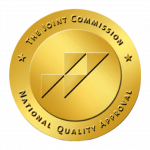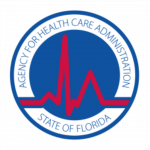You may be wondering, “How do I know if a loved one has relapsed?” If you’re concerned about a loved one’s drug use, or if you want to help them, your first step is to get the facts. Know the signs that indicate relapse. Relapse happens for many reasons. It may be related to life circumstances, such as having problems at work; being in an abusive relationship; or facing legal issues, like mental health issues or financial trouble. It may also be triggered by something a person does not want to acknowledge, like anxiety about their future. It can also happen without any explanation at all.
What To Do When Suspecting Relapse
The first thing to do is understand what relapse means and can look like. Getting the facts before deciding on a course of action will help you handle the situation in a responsible way. It’s also a good idea to remember that your loved one may be experiencing feelings of denial when they return to drugs. Denial is common, and it’s important to be kind in trying to work with the problem, rather than pushing for harsh or punitive measures.
Maintaining contact with your loved ones after they have taken drugs again is critical. It can take time for them to realize they have a problem and get help.
Getting Support
Addiction is a vicious cycle that is often difficult to break. You may think that you have overcome addiction, but, in reality, the chances of relapse are high. The only way to avoid a relapse is to be vigilant and try your best to stay away from situations where you know that addiction can pose a risk.
While taking care of yourself and abstaining from certain things will be beneficial for preventing yourself from relapsing into drugs or alcohol. It is also important to take steps with the people who are closest to you for them to support your endeavors.
Relapse Warning Signs
You may know that relapse is the most common reason for a return to addiction treatment. But did you know there are many changes in behavior that can indicate an impending relapse?
This article will outline 10 of those signs, from subtle changes like anger and irritability to the more severely impairing behaviors of drug-seeking and bingeing. We hope this guide will help you identify warning signs so you can take action right away. Remember: It is never too late!
The 10 Warning Signs
1) Irritability & Anger- unexplained rage or resentment, persistent anger, short temper, feeling stressed or on edge all the time.
2) Seeking Substances- the urge to use, cravings, desire to increase dosage; or the urge to get high.
3) Drug Seeking/Getting- when someone wants to use “just one more time,” or when someone is “going through a phase,” or if you find drugs under pillows, in your car glove compartment, etc.
4) Withdrawal Symptoms -experiencing physical symptoms such as restlessness, anxiety, and fatigue. Shaking and muscle tension are also present. Alcohol and benzodiazepine withdrawal symptoms can begin within an hour of stopping use; heroin withdrawal can begin within hours of last use.
5) Withdrawal Signs- unexplained anxiety, irritability, muscle tension, restless sleep, irritability.
6) Mood Changes- easily frustrated or extremely angry; depression or mood swings with no apparent reason.
7) Role Changes- chronic lack of fulfillment in life pursuits; neglecting responsibilities or changing normal routines.
8) Disinhibition- loss of inhibition such as uncontrolled laughing, unprovoked crying, irrational behavior; and impulsive behavior.
9) Bingeing- multiple days and nights without sleep, typically followed by a self-destructive spree of reckless or risky behavior, with no concern for how it affects others.
10) Risk-Taking- poor judgment; high-risk activities such as shoplifting, promiscuity, binge drinking, or driving while intoxicated.
All of us go through changes in moods but the best way to determine if symptoms are due to drug use is to try an “elevation of mood” experiment.” Try feeling really good for several days/weeks without the use of drugs to see how it goes.. Feeling the need to share private thoughts and feelings with others without regard to who hears them or consequences if the person is offended.
What Should You Do If a Loved One Has Relapsed?
When your loved one did not successfully finish treatment, you can revert to the strategy you formed if you are reasonably confident they have relapsed. This may include withholding financial assistance or other forms of assistance, as well as cutting all contact. Both of these things are complicated, but in the end, you encourage your loved one to take a test out of concern for them and to put your mind at ease. Anyone in treatment should be aware of this and know that, though frustrating, it is not a major issue. After facing consequences, someone who has relapsed and is determined to fight for rehabilitation may pursue further treatment. Others, though not lost causes, may take a little longer to seek assistance.














